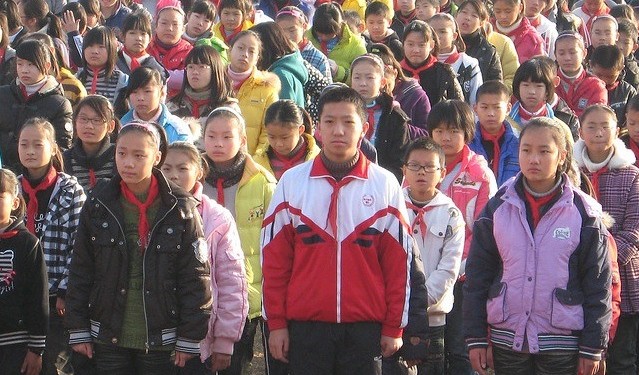One definite driver for English language learning is studying abroad. Reports indicate demand continues to increase for outbound study, so China has become entrepreneurial in this regard. For example, Chinese students are now able to sit their A-Levels in Beijing high schools, for example, before applying abroad. Once Beijing started to do this, Shanghai, Shenzhen and Hangzhou soon followed with special courses for students who intend to study overseas. New ideas and ways to approach education are booming.
News and business analysis for Professionals in International Education
Have some pie!
How does China’s one-child policy impact on education?

At last month’s China Outbound Travel and Tourism Market, appetite for education abroad was again underlined. Qinghui Qing, COTTM China representative, said, “Parents are pushing their kids a lot because of their interest in education abroad so organising Chinese students to go overseas is a huge part of the trade show.”
Alongside companies such as EF and New Oriental who not only offer language training in-country but also a study abroad placement service, hundreds of study abroad agencies now exist. One side-effect of China’s success-seeking boom, is, however, bogus agencies offering a dream education which turns out to be not so ideal and stories in the press of such scenarios now occur fairly frequently.
Mike Daly, President of American Education Partners, counsels, “Some of the practices of Chinese overseas counselling agencies have come under particularly hard scrutiny and controversy in the United States over the last few years because of several reports of students’ application document being falsified by the agencies.
This has started a movement by some groups in the United States, most prominently, NACAC (National Association of College Admissions Counselors), to ban the use of overseas counselling agents in member schools’ recruiting and admissions practices.” [Read an interview with Jim Miller, President of NACAC, here].
Daly’s company helps international students, including Chinese, to enter some of America’s best schools and programmes. “The most noticeable area of growth seems to be for products and services aimed at giving students an ever-increasing edge in getting into their top-ranked dream school,” he attests.
Education is said to account for 14% of families’ spending
June Yue, 25, can testify that everyone sets themselves almost unattainable goals. She was educated in Beijing and now works for an education agency in Australia. ‘I have been educated since I was little that the only way to have a good job and a nice life is to be the top student in your class, in your school. The Gao Kao is very important to all of the students and their parents,” she says.
The competitive climate has its costs. “I think about all of my university classmates, most of them are still in Beijing or other cities in China doing a very ordinary job and they are unhappy with low pay,” Yue continues.
During China’s Cultural Revolution, around 80% of Chinese were illiterate and in the 90’s, this started to turn. The transformation in the country’s educational policies and a new rule that primary school would be compulsory meant that 99% of children now attend school and illiteracy is just a few per cent.
Now, education is said to account for 14% of families’ spending. Students need to seek references from companies they pay to help them in their aspirations, and Beijing agency association BOSSA has started trying to clean up the education counselling industry.
The London Statement, announced last week by the British Council and AEI in Australia with buy-in from Ireland and New Zealand, also pinpointed China as one country to target to translate their ethical ideals.
A fast-developing market will engender some problems, but overall, opportunity and appetite abounds in the land of Little Emperors.
Still looking? Find by category:



One Response to How does China’s one-child policy impact on education?